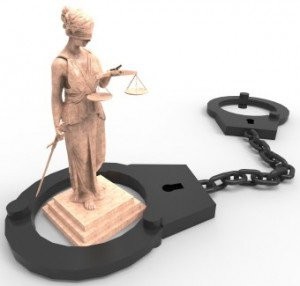
Having practiced criminal law for a couple decades now, I always thought the prosecutors’ role in trying cases was easier than ours.
We have to do the work of strategizing cross-examination and dealing with the uncertainties and give and take of witnesses — much tougher than direct. We have to deal with improvisation, not getting discovery till the last second, and not even knowing who the witnesses will be or the strength of the State’s proof. We have to deal with difficult clients facing years and years in jail.

Why Better Billing Statements Can Improve Your Firm’s Finances—And Your Client Relationships
Outdated billing is costing law firms money. Discover how clear, modern billing practices boost profits, trust, and cash flow in 2025.
All they have to do is put on a string of people to testify and elicit straightforward narratives — what-happened questions, and then what happened after that. Seems pretty simple.
But I’m learning, especially when dealing with state prosecutors who don’t have the wealth of resources afforded their federal counterparts — like teams of paralegals and up-to-the-minute electronic equipment both for investigations and trial show-and-tells — that for them, putting together a complex, multi-defendant, 20-witness case is tough.
The hardest part is getting it organized. Witnesses don’t want to come in, or can’t be found. Then, cops — who you’d think would be at the prosecutors’ beck and call — are often not. Their departments (precincts) don’t like losing manpower on the street by sacrificing them to a day of waiting around to testify. They’re not supposed to testify on their RDO (regular day off). Then when the prosecutor finally wrangles them to court, some cops come without having even looked at the file on which they’re testifying. If the prosecutor upbraids them for this – especially, I’ve heard, if she’s a young, female prosecutor — macho cops either won’t pay attention or might take offense and actually be more difficult the next time. (I mean, who does this chick think she is telling me how to do my work.)
I thought we defense attorneys always walked a fine line in cross examination, but prosecutors walk one too in direct examination of their own cops.

Decrypting Crypto, Digital Assets, And Web3
"Decrypting Crypto" is a go-to guide for understanding the technology and tools underlying Web3 and issues raised in the context of specific legal practice areas.
I’ve seen cops come to testify without their files or without sufficient prep. Of course, this makes cross examination more fun for us defense attorneys, but excruciatingly frustrating for the prosecutor.
Setting up what’s needed to prove every element of the crime charged is often painstaking. They have to prove, for example, not only that there was a gun, but that it was loaded, that it was operable, that the defendant displayed it, and that he intended to use it unlawfully.
It’s much easier to find gaps in the evidence then to build it from scratch. Knocking something down is easier than building it in the first place.
I’ve found time and time again that the best part of the prosecutor’s trial is his opening. The case generally gets worse after that.
Why? Because many prosecutors, especially new ones, don’t know how to prep their cops for cross examination. Maybe they don’t have the time or maybe they don’t want to step on cops’ toes, but unless the preparer looks at everything a cop says with a huge dose of skepticism, he’s not going to see all the cross-examination possibilities.
I get the sense a lot of police don’t like being prepped or bothered about trial. When you think about the hundreds and hundreds of arrests made and the number of times cops testify at trial (as opposed to the grand jury where they are not cross-examined), the ratio is about 300 to 1. I guess they figure their job is done when the arrest is made and the case indicted. The perp should just plead guilty so they can move on to the next arrest.
When this doesn’t happen, it throws a wrench into their work load and free time. They may not only resent the defendant for this, but the prosecutor as well.
So, although it’s against my interest as a defense attorney to offer tips to prosecutors and cops, I offer these few (although they are so obvious one would think they needn’t be mentioned):
1) Dress the part. Even if you’re a retired detective, come in wearing a suit and tie, and not your pizza-stained t-shirt.
2) Read the file you put together before you take the stand. It will refresh your recollection about the investigation and why you’re on the stand in the first place.
3) Look interested. I’ve had detectives on the stand who looked about as interested in the trial as a 10th grader in algebra class waiting for the dismissal bell to ring. Jurors notice, and if they think you don’t care, they won’t either.
Toni Messina has been practicing criminal defense law since 1990, although during law school she spent one summer as an intern in a large Boston law firm and realized quickly it wasn’t for her. Prior to attending law school, she worked as a journalist from Rome, Italy, reporting stories of international interest for CBS News and NPR. She keeps sane by balancing her law practice with a family of three children, playing in a BossaNova band, and dancing flamenco. She can be reached at [email protected] or tonimessinalaw.com.